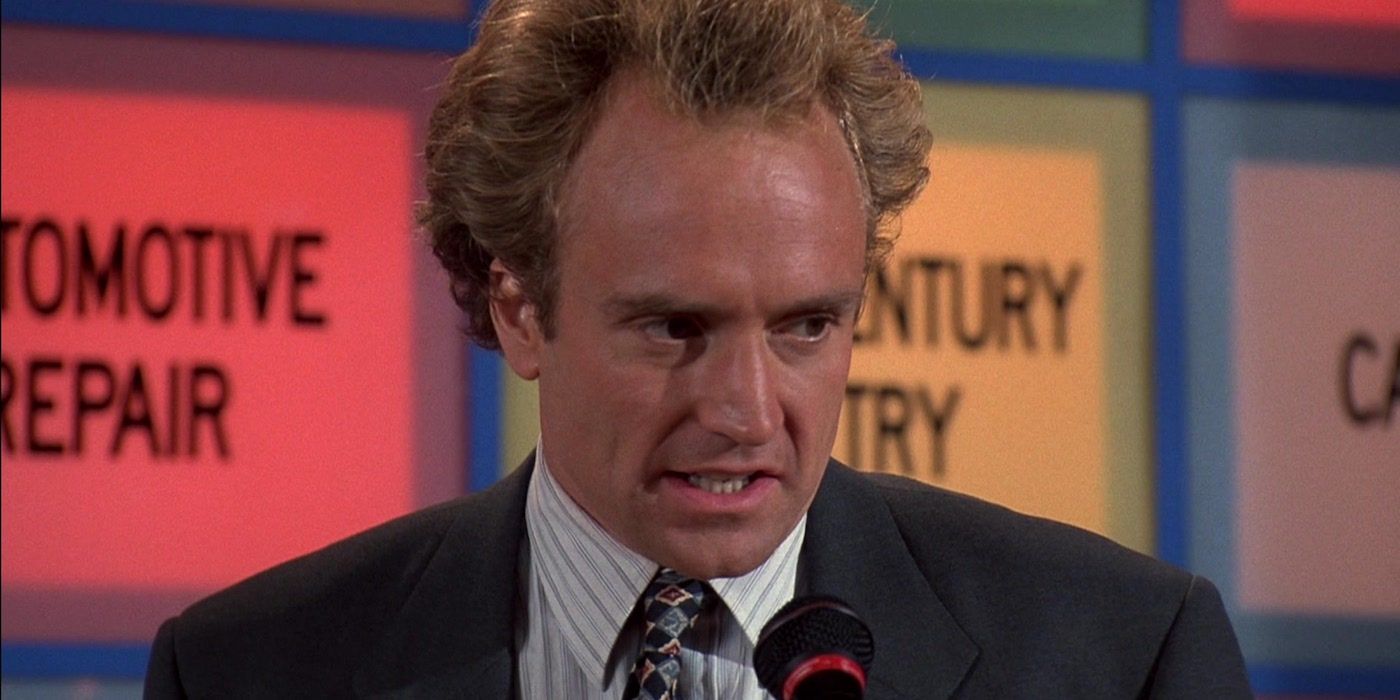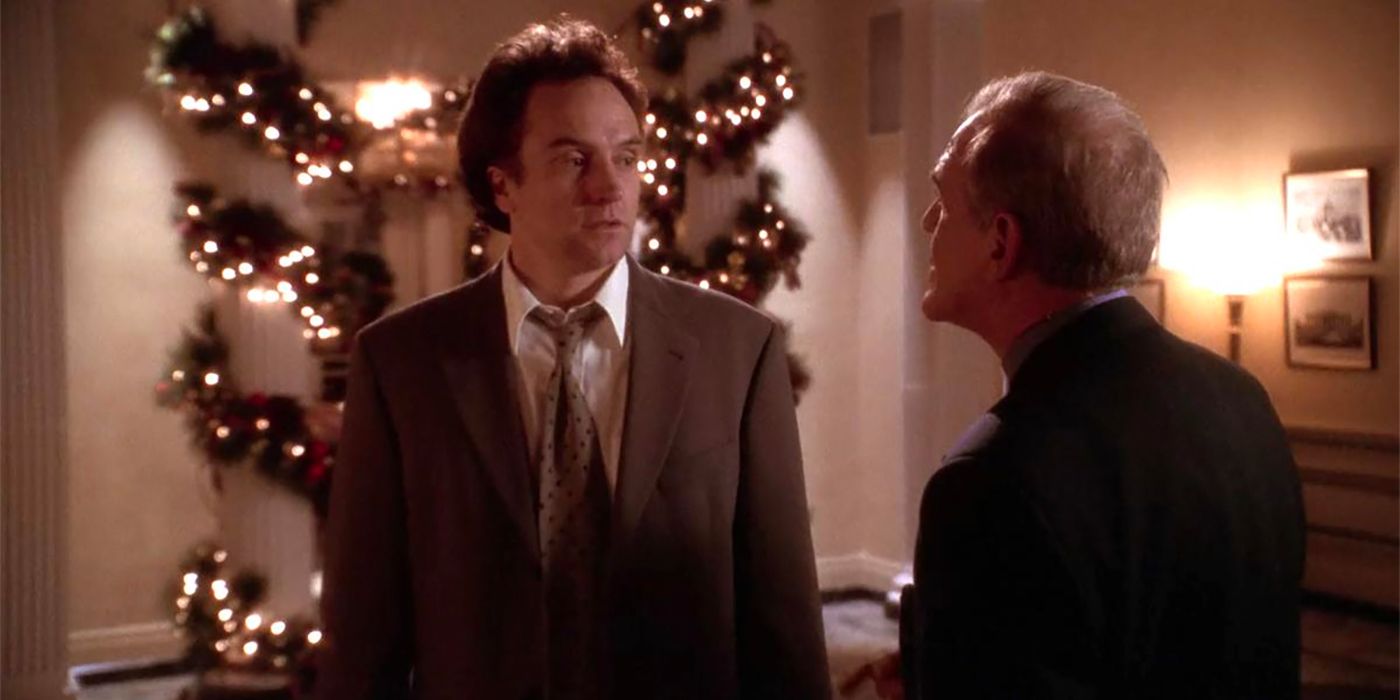The Big Picture
- The West Wing episode “Noël” explores the dark side of the holiday season, shedding light on the complexities and challenges many face during this supposedly joyful time.
- The episode offers an accurate and intimate portrayal of PTSD, destigmatizing the condition and showcasing the importance of recognizing and addressing trauma.
- Josh’s journey towards healing is exemplified through the support of his colleagues and the acceptance and grace extended to him, emphasizing the true meaning of Christmas.
Whether it was inventing the “walk-and-talk” camera technique or just remaining one of the best television shows to grace the small screen, The West Wing reveled in doing the unexpected. Case in point, creator and head writer Aaron Sorkin used the yearly holiday episodes common to TV at the time as just a tinsel-studded backdrop against which to examine sociological issues even more piercingly than was the show’s custom. Although the White House sets were decorated to the nines with the requisite bright lights and ornamented trees, Sorkin’s storylines in these episodes acknowledged the truth that America’s capitalist structure is all too happy to ignore: that the winter holidays are far from a unanimously happy time. For as many people who draw joy from the affectations and traditions of Christmas, there are as many or more wounded by them for countless reasons. Season 2, Episode 10, “Noël,” excels with this concept through a searingly accurate, deeply intimate portrayal of post-traumatic stress disorder, and in so doing not only destigmatizes PTSD but validates the complexity of December melancholy.
The West Wing
Inside the lives of staffers in the West Wing of the White House.
- Release Date
- September 22, 1999
- Seasons
- 7
- Showrunner
- Aaron Sorkin
What Is ‘The West Wing’ Episode “Noël” About?
Unlike most The West Wing episodes that balance multiple side plots across the expansive cast, “Noël” focuses almost entirely on Josh Lyman (Bradley Whitford, who won an Emmy for this performance), the Deputy White House Chief of Staff and one of the most visible main characters. During the Season 1 cliffhanger and Season 2 opener, Josh and the rest of President Jed Bartlet’s (Martin Sheen) immediate staff survived an attempt on their lives. Josh was among the gravely injured, and “Noël” opens on that calendar year’s Christmas Eve as he meets with a psychotherapist from the American Trauma Victims Association (ATVA). Josh isn’t there by choice but through the concern of his coworkers and the Chief of Staff, Leo McGarry (John Spencer), following a series of escalating, uncharacteristic outbursts. He arrives at the meeting in all his typical glory, with merciless one-liners and lackadaisical swagger at the ready, as well as a hand injury he brusquely dismisses as a minor accident. The longer the meeting lasts, however, the more agitated Josh becomes in reaction to the psychotherapist, Stanley (Adam Arkin), until he receives crucial answers to questions he wasn’t cognizant of asking. Stanley diagnoses Josh with PTSD; the episode’s conclusion is a bittersweet mixture of hope alongside uncompromising honesty that other media of the era may have avoided.
Even after 22 years, “Noël” is a mini-miracle in production and content value. For context, post-traumatic stress disorder occurs after an individual survives or witnesses an event threatening their physical safety or another traumatizing occurrence. The National Institute of Mental Health describes the re-experiencing symptom as “reliving the trauma over and over, including physical symptoms like a racing heart or sweating,” and how “symptoms may cause problems in a person’s everyday routine,” such as heightened anger and a lack of focus, and “words, objects, or situations that are reminders of the event can also trigger re-experiencing symptoms.”
Long associated with combat veterans, anyone can have PTSD following a life-threatening or psychologically volatile experience, such as a severe car accident or the passing of a loved one. Triggers vary person-to-person; some may tie directly to the inciting event while others occur during the person’s routine surroundings. In Josh’s case, his triggers are noises that unconsciously remind him of emergency sirens; specifically, the brass and string musicians playing in the lobby during the three weeks of December. Hearing “loud” Christmas music, one of the most beloved traditions of the holiday, gives rise to Josh’s irregular behavior in an ever-building subliminal way. He’s hostile towards coworkers, and his irritability is out of proportion to the scenario; he’s unable to process, understand, or truly notice his reactions. He even slips and says “I can hear the damn sirens all over the building” before immediately correcting himself to “the bagpipes” as if in a haze.
Truthfully, Josh doesn’t realize anything is different about himself and mocks Stanley from the start. Although he doesn’t say as much, Josh is insulted by the insinuation he needs therapeutic support. Because he’s ignorant of the literal sense of his needs, let alone how to healthily approach them, the episode’s emotional apex unfolds during a congressional Christmas performance by acclaimed cellist Yo-Yo Ma. Just like the musical instruments, Ma’s performance reminds Josh of the incident and induces a flashback where he relives the danger as if he were physically in that location and time; his fight-or-flight activates, he tastes adrenaline in his mouth, he panics. The experience plays on an emotional loop and the show’s editing attempts to mimic as much by sporadically flashing between Ma’s performance, Josh’s memories of the event, his reactions in the White House, and overlapping the cello chords with vehicle sirens, glass breaking, and a man knocking at Josh’s apartment door. It’s overwhelming. And without the tools to identify his triggers, without the professional guidance to recognize the symptoms, Josh feels powerless all while denying anything can be wrong.
Another level of accuracy lies in how those diagnosed with PTSD may unintentionally misremember events. Josh isn’t lying about how he hurt his hand; he believes it’s from broken drinkware rather than slamming his hand through a glass window after the cello performance. As Stanley explains, “You’re in nine kinds of pain,” confused and unsure while his psyche scrambles to “damage control” regardless. The goal isn’t for Josh to share his feelings and find a magical fix; the goal is to remember his trauma without reliving it. The terrified, agonized hope in Josh’s eyes after someone named and legitimized his pain is heartbreaking. Here, finally, is an answer. Here is the understanding he wasn’t aware could be afforded him.

This Bradley Whitford Role Stuck It to the 1% Before That Was a Thing
As Eric Gordon, Bradley Whitford gave us a maniacal villain that satirized the corporate world.
‘The West Wing’ Isn’t Afraid to Look at the Dark Side of Christmas
In typical West Wing fashion, “Noël” plays with expectations by setting Josh’s moment of emotional reckoning on Christmas Eve and what led to it in December. There’s no moment the White House isn’t decked out with ceiling-high trees, colorful light strands, wreaths on doors, giant red bows, and garland-draped doorways. In direct contrast to Josh’s trauma, his coworkers are excited about Ma’s performance and enjoy it earnestly and guilelessly. By shattering the stigmas surrounding PTSD through Josh’s achingly honest pain, “Noël” highlights the dark energy unique to December. Many long for the idyllic simplicity of carols, Hallmark movies, and hot cider, and wanting that solace isn’t wrong as long as neighbors obey the “love as thyself” commandment and embrace those who are hurting. The family-focused seasons and the bitter instability of the close to another year and all it wrought bring many, many hardships. Yet society loves to bury those cycles of pain under merry traditions and shopping deals as unhealthy as candy lodged in one’s tooth.
This brings the narrative full circle to Leo, a man diagnosed with alcoholism. He recites a parable to Josh about a man who fell into a hole and the friend who leaped down with him “because I’ve been here before, and I know the way out.” Often the hardest part of any mental health condition is asking for help, let alone accepting it when offered. Combined with Stanley assuring Josh he won’t relive the incident every time he hears music “because we get better,” Josh understands he can heal because a dear friend knows that path well. Leo extending genuine acceptance and grace toward Josh embodies the authentic meaning of Christmas as it’s pushed to the world at large more than any set of bagpipes could.
In the episode’s closing scene, a group of carolers singing “Carol of the Bells” complete with rhythmic bell-ringing briefly paralyzes Josh into silent reflection. He holds his emotional response to those bells alongside the newfound awareness of what it means for his life. Aaron Sorkin accepts the wintertime wounded through Josh, a character famous for always having (and needing) the last word. “Noël” makes room for the December times that are beautiful, melancholy, and as complex as the human experience.
The West Wing is available to stream on Max in the U.S.
Source link

